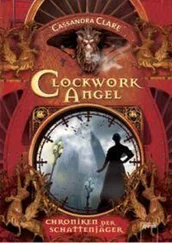Taken off to be stoned somewhere or other below the Palace, Ochre screeched that The Woman was a demoness, a curse not a blessing on the city. After this, inevitably, no further hags served in the Palace.
Later, when the first waves of lovers, having passed spectacularly well in the examinations, began to approach The Woman and she, as instructed, made love with them—initially loathing the act, which hurt her and also seemed grotesque—another unfortunate thing was discovered. The Woman did not ever conceive. Since tests had been made as well on the semen of all the young male lovers, and it was both wholesome and fertile, the fault must lie with The Woman’s body. But as she was The Woman, and the last woman of all women, it was concluded it could not be her fault, even after several quite horrible procedures to which she was subjected in order to ‘awake’ her womb, proved useless. A general decision asserted that the wicked hag Ochre, prior to the episode with the glass, had already succeeded in somehow poisoning The Woman and so negating her reproductive knack.
* * *
With maturity The Woman learned to enjoy the sexual act.
In the beginning, she herself read manuals of love she had been taught to read—and practiced such arts with the waves of lovers. But their frenzies of joy and gratitude frightened her.
She ceased to be active during sex, even restricting her cries at climax, for a similar reason.
At the start she had continued to fall in love and to wish to make a permanent union with this man or that.
But in the Palace the men in authority, who by that time grew old themselves, male hags who frequently went absent in death, had told her she might never choose any man above another. To choose one over all the rest would doubtless see him murdered. At best the city would riot and lose its collective mind.
Originally it seemed, the rite of the examinations to find the best, and the making of love between that best and herself, had been organized in the hope of children. Some of which, if the gods were tender, might be daughters.
But of course Ochre, or something or other, had forestalled that plan.
Now therefore the Woman’s only value was in her female presence, which must at intervals be revealed, offered and given to occasional males.
Until her own demise, this was all The Woman was to be for.
A vision, a goal, a sop. And a method of the most vicious rejection.
Partly she was to represent hope, still, and partly she was to teach that all women were worthless, evil, thus unregrettable. While the dying out of the human race, which now almost without a doubt was unavoidable, could be blamed on the female kind. Also too, perhaps, she was to demonstrate that death, and the death of humanity, might be no bad thing.
In these elements she was like a goddess.
For gods were cruel. They made hells as well as heavens, and all the earthly ills.
* * *
Having walked about for a while in the restful windowless room, The Woman sat down on an ivory bench.
She drank a little apricot wine.
She ate a sugar biscuit.
The enormous and never ending depression that now informed most of her days, and usually sleepless nights, came crouching up the floor and rubbed its flank against her consciousness.
Listlessly, resistlessly, she greeted it.
She did not want the riches of the Palace, nor the extreme—unreal—power she had been given. She did not really even want sex any more, let alone the intermittent torrents of young men who came to her, singing poetry, caressing and coaxing, their delicious kisses less than the momentary sweetness of a biscuit.
She might love none. She loved none.
She might choose none. She chose none.
She sent them away, and they threw themselves in the river and drowned, or slit open their veins or swallowed venom.
Oh, she did not dare give her heart now to any man. She would be loving a ghost. A thousand ghosts. Death itself.
So. The Woman did not want wealth or sex or ecstasy or worship or love.
Was there anything then that she wanted, longed for?
Yes. Yes.
The Woman wanted her mother. Sometimes even The Woman would daydream that This Fern, fresh up from her grave, would walk into the room. She would not be phantom, nor skeleton. She would not even be old. No, no, This Fern would be about The Woman’s own age. Whatever age that was.
But it was more than that, of course. Not only that she wanted the mother she had never known. It was women —Woman—The Woman wanted. Not for sexual love, never that. But… to talk to. To laugh with. To be with. Oh gods, women about her, easy and familiar, different and the same. Desire? Entirely. The desire of the lonely one for its other self. Here in the Palace high above the Crimson City and the world, The Woman sat on her bench of bone, pining, lamenting, slowly dying—for her own kind.
Gods who see me
When her I see,
See I have become
As a seeing god.
Translated from the poem by
Leopard 

A MASK OF FLESH
by Marie Brennan
Sitting alone in the green heat of the forest, far from the road and any observing eyes, Neniza began to craft her mask of flesh.
She started with her toes, for the face would be the hardest part. Toes, feet, legs; the gentle curve of hips. She would have dearly loved to shape for herself the slender, delicate body of an amantecatl, but it would never work. Oh, she could take the form easily enough, but the amanteca were not common caste, and she could never hope to mimic the ways of court folk well enough to pass. Instead she crafted the petite, pretty figure of a young alux peasant. Someone innocent of city ways. Someone who could catch the eye of the lord.
Her father had taught her this work, their art, after her horrified mother saw what she had birthed and left it in the woods. He wished she were still a son, Neniza knew, wished she had not changed into a daughter. Daughters were dangerous things. But his own words had done it, telling the story of what happened to their people. Waking the anger in her. The priests spoke of the wet season and the dry season, the season of giving and the season of taking. For her people, it was no mere abstraction. Their bodies reflected their souls.
Perhaps her father could overlook the wrong they had suffered; Neniza could not. She had not told him where she was going, what she intended to do. He believed they should stay out of sight, accept the hidden existence left to them—never mind that he himself went to town all too often, to court the women of other castes, perhaps to sire more children for them to fear. It was all right for him .
But not for her. Not so long as she remained female. She was too dangerous.
That means I’m powerful , Neniza thought, and began to work on her face.
She made it a young one, and attractive, wondering as she did so if it looked anything like her mother. Her father would never say. Neniza had nothing to know her by, no way to pick her mother out of the countless aluxob working the fields, and if she were to go to town without her mask of flesh, her mother would never acknowledge a thing like her as offspring. Every time she made an alux face, she told herself it was her mother’s, and every time it was different.
Bushy, soft hair above a round and cheerful face, with eyes the fresh green of new corn. The mask was complete, but Neniza hesitated. Her father would warn her against this, if he knew.
Читать дальше














